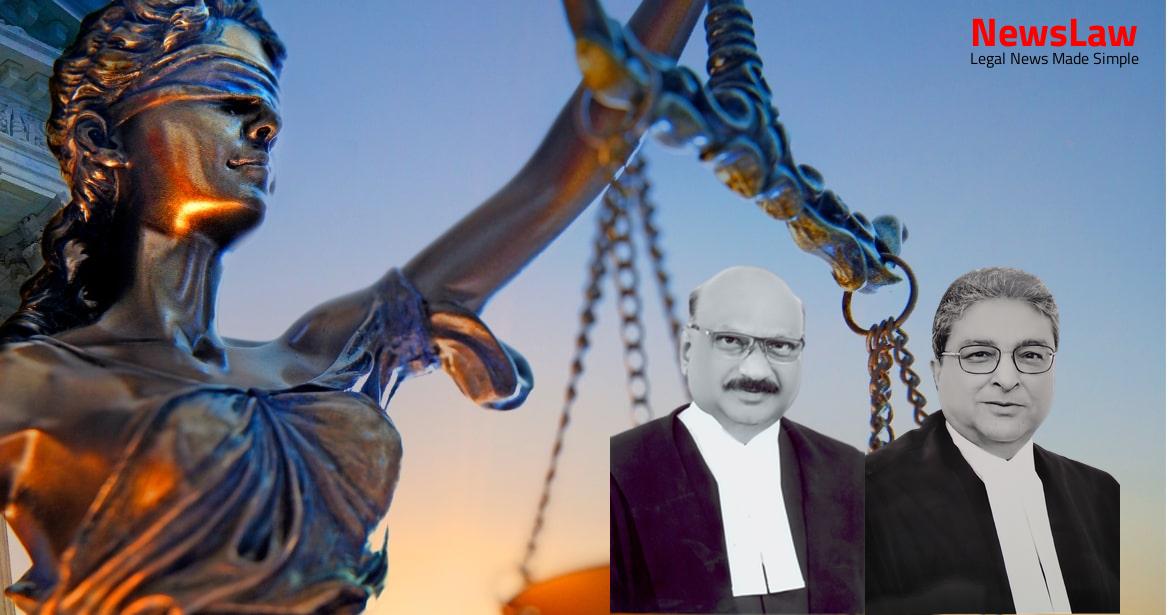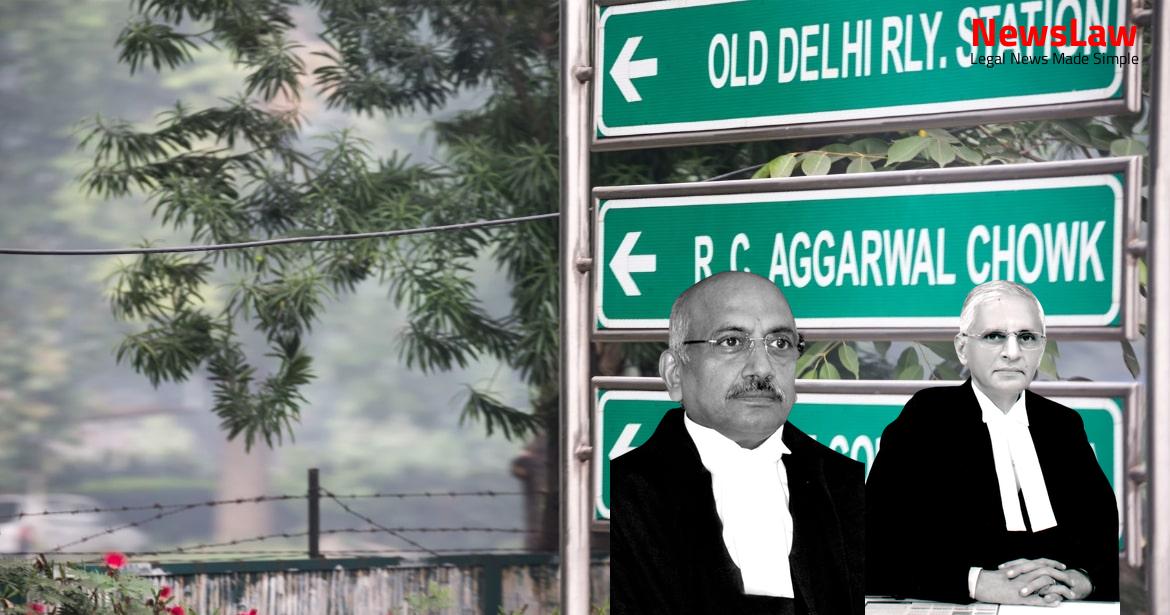This case summary explores the court’s legal analysis on the duty of care in bank locker operations. The court’s examination of bailment laws and the evolving standards of locker management in the banking sector provides valuable insights into the responsibilities of banks towards their customers. Stay tuned to learn more about the implications of this analysis on consumer protection and banking regulations.
Facts
- The Appellant’s locker was broken open by Respondent No. 1 Bank on 22.09.1994 for non-payment of rent dues for the period of 1993-1994.
- Respondent No. 1 admitted to inadvertently breaking open the locker, apologized, and confirmed there were no outstanding dues.
- The Appellant claimed seven ornaments were missing from the locker when he went to collect them on 17.06.1995.
- Respondent No. 1 was directed to return the entire contents of the locker or pay Rs. 3,00,000 for the cost of the jewelry and Rs. 50,000 as compensation for mental agony, harassment, and cost of litigation.
- The inventory prepared by Respondent No. 1 at the time of breaking open the locker showed only two ornaments, contradicting the Appellant’s claim.
- The Appellant’s mother took the locker in the 1950s, with the Appellant becoming a joint holder in 1970.
- Consumer Forum not equipped to undertake evaluation, directed appellants to approach civil court for adjudication on locker contents
- Revision Petition against State Commission’s order dismissed
- State Commission accepted District Commission’s findings on deficiency of service but reduced compensation
- State Commission relied on National Commission’s judgment in UCO Bank v. RG Srivastava regarding dispute on locker contents requiring elaborate evidence
Also Read: Curbing Frivolous Litigations: Judicial Analysis
Issue
- The first issue to be considered is whether the Bank owes a duty of care to the locker holder under laws of bailment or any other relevant law concerning the contents of the locker.
- It needs to be determined if this duty can be effectively adjudicated within consumer dispute proceedings.
- The second issue is whether, regardless of the previous determination, the Bank has an independent duty of care towards its customers in the management and operation of the locker itself, distinct from the contents within it.
- The question also arises on whether compensation can be granted for any failure to meet such duty.
Also Read: Interpretation of Insurance Policy Provisions in Liability Determination
Arguments
- The National Commission accepted the State Commission’s decision regarding the limited jurisdiction of the Consumer Forum in adjudicating on the recovery of locker contents.
- The case is now appealed.
- The counsel for the Appellant argued that sending the case back to the civil court for assessing locker contents would be challenging as only the locker holder knows its contents.
- Counsel relied on Charan Singh v. Healing Touch Hospital & Ors. for the argument that compensation should induce a positive change in service provider behavior.
- Appreciation of evidence by the trial court is necessary before awarding jewellery.
- The National Commission’s decision is supported by the Respondents.
- The Respondents argue against interference in the National Commission’s holding.
Also Read: Interpretation of Section 195(1)(b)(i) in Relation to Fabricated Evidence
Analysis
- The High Court concluded that the banks must follow due diligence in operating their locker facilities.
- The laws of bailment must be considered to determine the relationship between the bank and the locker holder.
- The bank’s duty of care in maintaining and operating lockers is crucial, irrespective of bailment laws.
- There is currently inadequate regulation on locker management, leading to varying procedures among different banks.
- The RBI has issued guidelines recommending the exercise of due care by banks in protecting lockers since 2007.
- The responsibility of banks for the loss of articles inside lockers remains a contentious issue, with no clear legislation on the matter.
- Clear principles must be established to ensure banks uphold proper locker management until comprehensive guidelines are issued.
- The role of technology in modern lockers, such as electronically operated systems, presents new challenges for customer access and bank responsibility.
- Customers expect banks to safeguard their assets when using locker services.
- Judgments from foreign jurisdictions and regulatory circulars have influenced the approach to locker management in India.
- Costs and compensation may be imposed on banks for negligence in locker operations, as seen in the case discussed.
- The Punjab and Haryana High Court examined the locker system in Atul Mehra v. Bank of Maharashtra related to a theft of jewels from a locker.
- Banks commonly disclaim liability for lost articles in lockers without uniform parameters or policies.
- Court decisions like Blair v. Riley and National Safe Deposit Company v. Stead establish the bailor-bailee relationship for bank lockers.
- Without evidence of entrustment to the bank, the bank cannot be held liable for the loss of articles in the locker.
- Previous cases where detailed proof was provided for stolen items from bank lockers resulted in compensation by banks.
- In cases like UCO Bank, failure to prove entrustment of articles to the bank resulted in the claimants not succeeding in obtaining relief.
- The bank’s unrestricted access to the locker and the limitations on the hirer’s access were highlighted in the context of liability.
- Courts have emphasized the need for evidence of entrustment and the valuation of items stored in bank lockers to establish liability.
- Prima facie evidence of depositing items in the locker is required to hold banks liable for losses.
- The relationship between banks and locker holders is viewed as that of a service provider and consumer, requiring evidence to prove claims of lost items.
- Due notice in writing must be given to the locker holder before breaking open the locker.
- The notice should be provided at a reasonable time prior to the action.
- This requirement ensures that the locker holder is informed and has the opportunity to address any issues.
- RBI directed to issue suitable rules or regulations within six months from the date of this judgment.
- Principles stated in the judgment, especially at para 12, are binding on banks providing locker or safe deposit facilities until new Rules are issued.
- RBI may also issue rules clarifying banks’ responsibility for any loss or damage to locker contents.
- Banks cannot impose unilateral and unfair terms on consumers.
Decision
- Deduction of Rs. 5,00,000/- from the salary of erring officers if still in service
Case Title: AMITABHA DASGUPTA(DEAD) THROUGH LR. Vs. UNITED BANK OF INDIA . (2021 INSC 104)
Case Number: C.A. No.-003966-003966 / 2010



